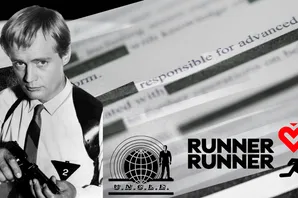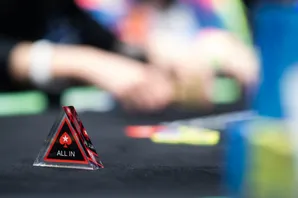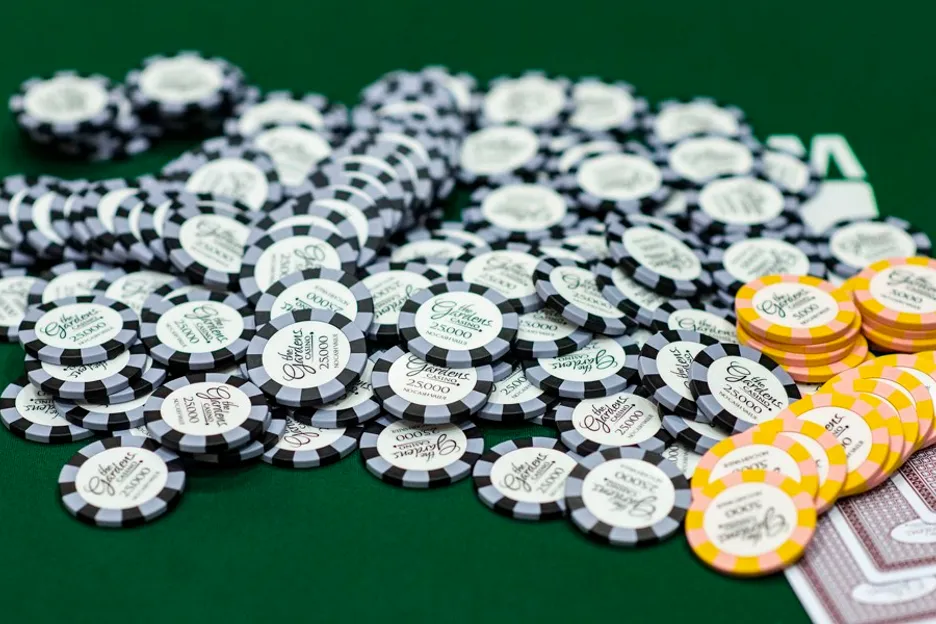
Good afternoon, please have a seat. My name is Illya Kuryakin. For many years, I was an agent at the United Network Command for Law and Enforcement, better known as “U.N.C.L.E.” During that time, I was engaged in international espionage – “spying,” if you will – to support and defend democracies around the world. After I retired from that, I became a doctor, and ultimately a medical examiner for the U.S. Navy. Recently, though, I was asked to give you some training for your upcoming assignment. The combination of interesting work and excellent compensation was more than I could pass up.
First, I am told that you know nothing of what you are expected to do. So I will lay out your assignment. Please take detailed notes and ask any questions you might have.
The Assignment
When you leave this room, you will be handed a PokerStars Platinum Pass.
Beginning today, you must play at least one hour of poker in a legal American poker room every two days for the next 18 days.
Each time you depart a poker room
During these 18 days, you must produce a video of yourself playing in every poker room in which you play a hand. On travel days, you must produce a video of yourself in front of a place of business. All of these videos will be published on public Internet channels. If you make it to the end of the 18-day period without anyone “capturing” you, you keep the Platinum Pass and play poker for millions of dollars in the Bahamas. If you are “captured” during that 18-day period, you will get no compensation.
You have a modest travel budget that allows for car rental and flights. You will also be given cash to support the requirements of your assignment.
Going Dark
The Platinum Pass is worth $30,000 – perhaps many multiples of that, if you are skilled and fortunate. But more importantly, it will give you a once-in-a-lifetime experience in an exotic tropical location. I, myself, have fond memories of the Bahamas, in particular a month at the Navy’s AUTEC on Andros Island. There are many stories, both professional and personal, about that time which I could tell, but of course, I shan’t.
And that goes directly to my next point, which is the key to everything I say here. If you remember none of the details of this lecture, remember this:
You must go dark.
“Going dark” is an expression in the espionage trade. It means to do everything necessary to be sure that you are not being followed or tracked in any way. Only once one is “dark” can they go about their actual mission, be that making a clandestine drop, picking up a drop, meeting a contact, etc. It involves changing clothing, never following a pattern, multiple modes of travel, doubling back on yourself, and so on. Professional spies spend years being trained in the skill of “going dark.”
You, however, have a few hours, and this little conversation.
You also have two hindrances that our typical “spy” does not.
First, consider a CIA agent stationed in Moscow. They will not be identified as such, of course. Their assignment will be as a State Department consular officer, or another legitimate diplomatic post. The Russians may suspect, or even know, that this person is not who they appear to be. But unless Boris can catch the agent doing something illicit, they can only watch. If the agent is successful at going dark, all is well. You, however, are caught the moment you are identified and engaged – the Platinum Pass will be taken from you, and the party is over.
As if that weren’t enough, you must occasionally poke holes in your cover of darkness and let pinpoints of light in. The videos you make will be shared far and wide. People around the United States will pore over these videos for any hint of where you are, and where you might be next.
Thus you must reveal as little as the rules of The Game permit, and restore your cloak as quickly and effectively as possible.
For better or worse, you belong to a generation that is addicted to attention, notoriety, and clicks. You “check in” at every cafe, nightclub, concert, and sporting event you attend. To many of your age, invisibility is your greatest fear.
And yet, for the next 18 days, invisibility will be your salvation. Listen closely.
Tradecraft
We don’t have enough time to give you more than a whisper of guidance, but I shall do my best to cover the important highlights.
Detach from the Internet. Do not take your mobile phone with you. It likely has software that allows other people to see your location. It has social media applications which follow you. I emphasize to you that the very word “follow” is the most fervent wish of many social media participants. You must not be followed. You must not check in. Do not go on Facebook, Instagram, Twitter, or any other social media platform.
You will be allowed “burner” phones, as you might buy at an electronics shop or convenience store. Use them only, and then only when absolutely necessary.
If you have a laptop with you, be sure that it is on a VPN at all times. Better yet, don’t have a laptop.
Detach from people. I grant that detaching from your friends and family will be difficult. But you must minimize, to the finest degree possible, the number of people who know what you’re doing and where you are. Sadly, I had colleagues who lost their lives because they trusted the wrong person. Or worse, that trusted person unwittingly revealed my friend’s true identity and nature. Fortunately, your life is not at issue here, but for 18 days, you will do well to act as if it were. Ask yourself if it is absolutely vital that any specific person know your whereabouts. If the answer is “No,” then don’t tell them. My current employer, the United States Navy, has an old saying: “Loose lips sink ships.”
Shed your identities like yesterday’s newspaper. Start with your current identity. Leave your favorite baseball cap and sports team jersey at home. Wear clothes that are unlike the “you” that you know. Once a particular outfit or look has appeared in a video or picture on the Internet, drop it. Find your clothes at thrift stores or “cheap and cheerful” shops.
Sunglasses and hats are your friend. They don’t look out of place in a poker room, but cloud many of the cues that humans use to recognize each other.
Choose poker rooms carefully. Small, out-of-the-way poker rooms have fewer people to recognize you, and reduce the probability of a chance encounter with somebody who is in The Game. However, such rooms usually have a small local player pool, and everybody knows everybody else. A stranger will be immediately marked as such, and you may get attention and questions you don’t want.
Huge first-tier poker rooms offer anonymity, but also a large population of poker media aficionados. They will be talking at the table about the journey you are on, and wondering if any given person in the room might be you. This is a risk you don’t need.
Ultimately, I believe your best bet is to find a compromise between those extremes. Stay away from the 2- and 3-table poker rooms where you will stand out from the locals like a sore thumb. But equally avoid the Aria, MGM National Harbor, and Seminole Hard Rock in Hollywood, Florida – all places where you will be a constant topic of conversation.
Blend in at the table. Do not be the loudest, or softest, person in your game. The same applies to your poker style – remember, your goal is not to win money, it is to be invisible. If limping in preflop is the common behavior, then do that. If 3-bets are rare, then don’t 3-bet – that simply attracts attention to yourself.
Another suggestion: if there is a limit hold’em or Omaha/8 game in the room, play in that. That is well within the rules of The Game. But the players in those games will be older and more detached from the current poker media buzz of the day. Understand, however, that the people looking for you may start prowling limit hold’em and Omaha/8 games.
Hit and run. The rules of your assignment say that you must play at least one hour. Do not be at the table for 62 minutes.
Leave invisibly. Your single most vulnerable moment











